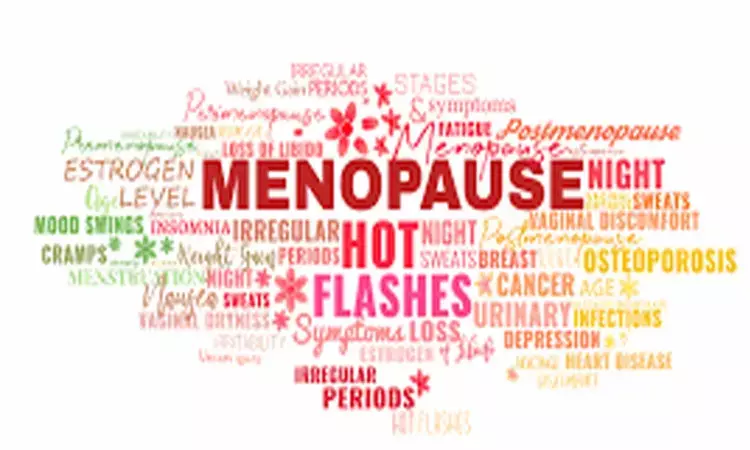- Home
- Medical news & Guidelines
- Anesthesiology
- Cardiology and CTVS
- Critical Care
- Dentistry
- Dermatology
- Diabetes and Endocrinology
- ENT
- Gastroenterology
- Medicine
- Nephrology
- Neurology
- Obstretics-Gynaecology
- Oncology
- Ophthalmology
- Orthopaedics
- Pediatrics-Neonatology
- Psychiatry
- Pulmonology
- Radiology
- Surgery
- Urology
- Laboratory Medicine
- Diet
- Nursing
- Paramedical
- Physiotherapy
- Health news
- Fact Check
- Bone Health Fact Check
- Brain Health Fact Check
- Cancer Related Fact Check
- Child Care Fact Check
- Dental and oral health fact check
- Diabetes and metabolic health fact check
- Diet and Nutrition Fact Check
- Eye and ENT Care Fact Check
- Fitness fact check
- Gut health fact check
- Heart health fact check
- Kidney health fact check
- Medical education fact check
- Men's health fact check
- Respiratory fact check
- Skin and hair care fact check
- Vaccine and Immunization fact check
- Women's health fact check
- AYUSH
- State News
- Andaman and Nicobar Islands
- Andhra Pradesh
- Arunachal Pradesh
- Assam
- Bihar
- Chandigarh
- Chattisgarh
- Dadra and Nagar Haveli
- Daman and Diu
- Delhi
- Goa
- Gujarat
- Haryana
- Himachal Pradesh
- Jammu & Kashmir
- Jharkhand
- Karnataka
- Kerala
- Ladakh
- Lakshadweep
- Madhya Pradesh
- Maharashtra
- Manipur
- Meghalaya
- Mizoram
- Nagaland
- Odisha
- Puducherry
- Punjab
- Rajasthan
- Sikkim
- Tamil Nadu
- Telangana
- Tripura
- Uttar Pradesh
- Uttrakhand
- West Bengal
- Medical Education
- Industry
Psychosocial stressors including abuse linked to Worse Menopausal Symptoms later

BOSTON: According to research reported in Menopause, The Journal of the North American Menopause Society, women who had a history of violence or economic instability were more likely to experience worse menopausal symptoms and overall wellbeing.
Hot flashes, sleep issues, depressive symptoms, and sexual dysfunction are among the symptoms of menopause that are frequently present and have a negative impact on a woman's quality of life. The menopause affects women differently, with some experiencing considerably more severe symptoms than others.
The authors studied the long-term relationships between psychosocial stressors and the health and well-being of women in their mid-life, including menopausal symptoms.
The study comprised 682 pregnant women who had been enrolled in Project Viva, a prospective cohort study of mothers and their children with continued follow-up, between 1999 and 2002. During study visits while pregnant, these women disclosed a history of both past and recent physical and sexual violence as well as financial hardship. Women who were postmenopausal or 45 years of age or older self-reported menopausal symptoms using the Menopause Rating Scale at study visits between 2017 and 2021. (MRS). The Menopause Rating Scale (MRS) assigns a total of 44 points to each of the somatovegetative symptoms of menopause, including hot flashes, heartburn, insomnia, joint and muscle pain, and psychological and urogenital symptoms. Women also rated their overall health, anxiety issues using the Generalized Anxiety Disorder-7 (GAD-7), and symptoms of depression using the Patient Health Questionnaire-9 (PHQ-9).
Conclusive points of the study:
- Altogether, physical abuse was reported by 37.3% of women, sexual abuse by 7.7%, and financial difficulties by 10.8%.
- Women who reported physical abuse also mentioned worse somatovegetative (OR = 0.46 points; 95% CI, 0.04-0.87) and psychological menopause symptoms (OR = 0.52 points; 95% CI, 0.07-0.97), in addition to worse general health (OR = 1.73; 95% CI, 1.17-2.55) and worse symptoms of depression (OR = 1.74; 95% CI, 1.05-2.87) compared to women reporting no psychosocial exposures.
- When compared to not being exposed to psychosocial stressors, sexual abuse was also linked to worse overall menopausal symptoms (OR = 2.81 points; 95% CI, 1.05-4.56) and worse health in general (OR = 2.04; 95% CI, 1.04-4.03). Nevertheless, there was no connection between sexual abuse and depressive symptoms.
- Comparatively to women who did not report abuse or financial instability, women who reported economic instability had worse overall menopausal symptoms (OR = 1.92 points; 95% CI, 0.49-3.34), worse general health (OR = 2.16; 95% CI, 1.24-3.75), and worse symptoms of depression (OR = 2.68; 95% CI, 1.44-4.98).
"The long-lasting effects of negative events on women's physical and mental health are highlighted by these findings, which also underscore the significance of past exposure to psychosocial stresses when assessing the health of women in their midlife," the authors added.
The study's findings led the investigators to the conclusion that, decades after the first finding, psychosocial stressors were linked to worse menopause symptoms and wellbeing.
REFERENCE
Faleschini, Sabrina PhD1; Tiemeier, Henning MD, PhD2; Rifas-Shiman, Sheryl L. MPH1; Rich-Edwards, Janet ScD, MPH3,4,5; Joffe, Hadine MD, MSc5,6; Perng, Wei PhD, MPH7; Shifren, Jan MD, NCMP8; Chavarro, Jorge E. ScD, MD3,9; Hivert, Marie-France MD, MMSc1,10; Oken, Emily MD, MPH1,9. Longitudinal associations of psychosocial stressors with menopausal symptoms and well-being among women in midlife. Menopause: September 13, 2022 - Volume - Issue - 10.1097/GME.0000000000002056 doi: 10.1097/GME.0000000000002056
Dr Kamal Kant Kohli-MBBS, DTCD- a chest specialist with more than 30 years of practice and a flair for writing clinical articles, Dr Kamal Kant Kohli joined Medical Dialogues as a Chief Editor of Medical News. Besides writing articles, as an editor, he proofreads and verifies all the medical content published on Medical Dialogues including those coming from journals, studies,medical conferences,guidelines etc. Email: drkohli@medicaldialogues.in. Contact no. 011-43720751


